What Is Hard Water? Causes, Effects & Solutions
Learn what hard water is, what causes it, its impact on your home and health, and how to treat it with softeners and filters. Complete expert guide.
- What Is Hard Water? A Deep Dive Into Its Causes, Effects, and Solutions
- What Exactly Is Hard Water?
- How Is Water Hardness Measured?
- What Causes Hard Water?
- Signs and Symptoms of Hard Water in Your Home
- Is Hard Water Dangerous to Your Health?
- How to Test for Hard Water at Home
- Solutions to Hard Water Problems
- Environmental and Economic Impacts of Hard Water
- Conclusion: Understanding Hard Water Is the First Step to Solving It
- Frequently Asked Questions

What Is Hard Water? A Deep Dive Into Its Causes, Effects, and Solutions
Water is often called the universal solvent, but not all water is created equal. If you've ever noticed white spots on your dishes, stiff laundry, or soap that just won't lather, you might be dealing with hard water. While it's not inherently harmful to drink, hard water can wreak havoc on plumbing, appliances, and even your skin and hair.
This article explains what hard water is, where it comes from, how it affects daily life, and the most effective methods for dealing with it. Whether you’re a homeowner, a property manager, or a curious learner, this guide will provide the clarity and technical insight you need.
What Exactly Is Hard Water?
Hard water is water that contains high levels of dissolved minerals, primarily calcium and magnesium. These minerals naturally enter water supplies as it moves through soil and rock, dissolving small amounts of these elements along the way.
Defining Hardness: Temporary vs. Permanent
1. Temporary hardness: Caused by dissolved bicarbonate minerals like calcium bicarbonate. It can be removed by boiling.
2. Permanent hardness: Caused by non-bicarbonate salts such as calcium sulfate. It cannot be removed by boiling and requires chemical treatment.
How Is Water Hardness Measured?
Water hardness is typically measured in:
1. Parts per million (ppm)
2. Milligrams per liter (mg/L)
3. Grains per gallon (gpg)
|
Classification |
gpg |
ppm (mg/L) |
|
Soft |
0–1 |
0–17.1 |
|
Slightly hard |
1–3.5 |
17.1–60 |
|
Moderately hard |
3.5–7.0 |
60–120 |
|
Hard |
7.0–10.5 |
120–180 |
|
Very hard |
>10.5 |
>180 |
What Causes Hard Water?
Hard water is a geological consequence. As water travels through limestone, chalk, or gypsum, it picks up calcium and magnesium ions. Groundwater sources are especially prone to hardness due to their longer contact time with mineral-rich rock layers.
Factors That Influence Water Hardness
Local geology: Areas rich in calcium carbonate have naturally hard water.
Source of water: Well water is generally harder than surface water.
Climate and rainfall: Rainfall can dilute or concentrate mineral presence.
Water treatment facilities: Not all municipal systems soften water.
Signs and Symptoms of Hard Water in Your Home
Even without testing kits, you can often detect hard water through several obvious signs.
1. Soap Doesn’t Lather Well
Hard water reduces soap’s effectiveness by reacting with it to form soap scum.
2. Scale Build-Up on Appliances and Fixtures
White, chalky deposits appear around faucets, inside kettles, and on heating elements.
3. Dingy Laundry and Stiff Fabrics
Hard water interferes with detergent, making clothes look dull and feel coarse.
4. Dry Skin and Hair
The minerals in hard water leave behind residue, clogging pores and drying out skin and scalp.
5. Shortened Appliance Lifespan
Water heaters, washing machines, and dishwashers may fail early due to mineral scale buildup.
Is Hard Water Dangerous to Your Health?
Generally, hard water is not harmful to drink. In fact, calcium and magnesium are essential minerals. However, it can have indirect health effects.
Potential Health Concerns
Skin irritation: Especially in people with eczema or psoriasis.
Hair breakage and dullness: Due to mineral deposits.
Kidney stones: While inconclusive, some studies suggest long-term ingestion may contribute.
Nutritional Upside
Hard water can supplement dietary calcium and magnesium, albeit in small amounts.
How to Test for Hard Water at Home
You don’t need to be a chemist to detect hard water.
Simple DIY Soap Test
1.Fill a clear bottle halfway with water.
2.Add a few drops of liquid soap.
3.Shake vigorously.
4.Few suds and cloudy water? Likely hard water.
Home Test Kits
Widely available online or at hardware stores
Measure exact hardness levels in ppm or gpg
Some kits test for both calcium and magnesium levels
Professional Water Analysis
For precision, you can send a water sample to a lab or request testing from your municipal supplier or a local plumber.
Solutions to Hard Water Problems
Fortunately, hard water can be treated effectively. Here’s how:
1. Water Softeners
A water softener is the most comprehensive solution. It exchanges calcium and magnesium ions with sodium or potassium ions using a resin bed.
Pros: Whole-house solution, extends appliance life, improves soap lather.
Cons: Requires salt refills and periodic maintenance.
2. Salt-Free Water Conditioners
These systems crystallize the minerals instead of removing them. They don’t soften water per se but prevent scale buildup.
Best for: People avoiding sodium in water
Not ideal for: Severe hardness problems
3. Reverse Osmosis Systems
RO filters remove up to 99% of dissolved minerals, ideal for drinking water only.
Best for: Kitchen tap installation
Limitations: Not suitable for whole-home treatment
4. Magnetic and Electronic Descalers
Claim to change mineral behavior via magnetic fields to prevent scaling. Evidence is mixed, and effectiveness varies.
Environmental and Economic Impacts of Hard Water
Hard water may seem like a nuisance, but it carries broader implications.
Increased Energy Bills
Scale buildup in water heaters reduces efficiency, increasing heating costs by up to 25%.
More Soap, More Waste
Hard water leads to higher soap consumption and more wastewater, affecting both your wallet and the environment.
Infrastructure Damage
Municipal plumbing systems in hard water regions face higher maintenance costs and shorter pipe lifespans.
Conclusion: Understanding Hard Water Is the First Step to Solving It
Hard water may be invisible to the eye, but its effects are evident throughout your home, health, and budget. Knowing what hard water is, how to identify it, and the ways to manage or remove it can lead to significant long-term benefits—from softer laundry to longer-lasting appliances and improved skin comfort.
With accurate testing and the right treatment solutions—whether through softeners, conditioners, or RO systems—you can regain control over your water quality and turn every faucet in your home into a source of clean, efficient hydration.
Frequently Asked Questions
Q1: Can I drink hard water daily without health issues?
Yes, hard water is generally safe to drink and can provide calcium and magnesium. However, very hard water may cause plumbing issues or mild gastrointestinal discomfort in sensitive individuals.
Q2: How often should I regenerate my water softener system?
This depends on the system and water hardness. Most residential systems regenerate every 2–3 days, but some smart systems regenerate based on water usage.
Q3: Does boiling water remove hardness?
Boiling only removes temporary hardness caused by bicarbonates, not permanent hardness from sulfates and chlorides.
Q4: Is hard water better for plants than soft water?
Yes. Hard water provides minerals plants can use. Softened water with sodium can harm some plants, especially houseplants and those sensitive to salt.
Q5: How do I know if I need a whole-house solution or just a point-of-use filter?
If you notice scale buildup on fixtures, stiff laundry, and poor soap lather, a whole-house softener is ideal. For drinking only, a reverse osmosis system under the sink may be sufficient.




Request More Information or Expert Advice
Share a few details, and we’ll provide deeper insights, tailored suggestions, or product support.

Our 500 LPH Reverse Osmosis (RO) System is engineered to provide high-quality purified water for commercial applications. Designed with advanced RO technology, durable components, and a user-friendly interface, this system ensures consistent performance, low maintenance, and long-term reliability.
With its compact design and robust skid-mounted frame, it’s an excellent choice for businesses that demand efficiency and quality in water purification.

TWV series Reverse Osmosis (RO) systems are pre-engineered and pre-assembled units with 2.5”/4” membrane housings(single element type)for tap water(lower TDS).They are designed for overall superior performance, high recovery rates and offer great savings with low maintenance and operation costs.

TWF series Reverse Osmosis (RO) systems are pre-engineered and pre-assembled units with 4” membrane housings(multiple elements type) for tap water(lower TDS) .The medium large volumes can help meet your a variety of commercial and industrial applications. They are designed for overall superior performance, high recovery rates and offer great savings with low maintenance and operation costs.

TWE series Reverse Osmosis (RO) systems are pre-engineered and pre-assembled units with 8” membrane housings for tap water (lower TDS). The large volumes can help meet your a variety of industrial applications. They are designed for overall superior performance, high recovery rates and offer great savings with low maintenance and operation costs.
© 2026 AQUALITEK. All rights reserved.

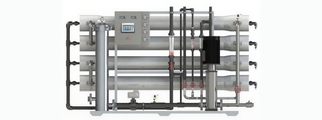
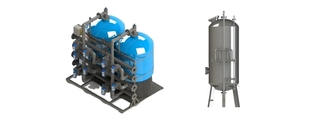
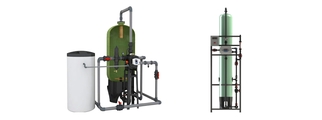
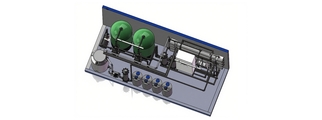
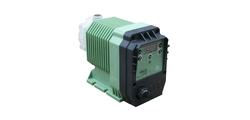
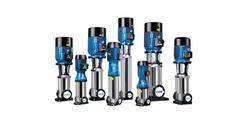
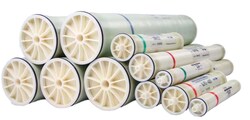
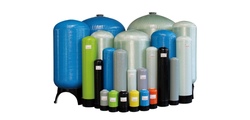
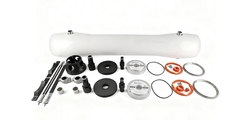
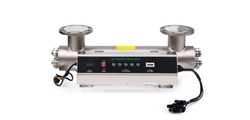
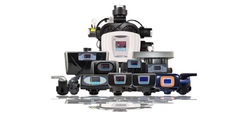
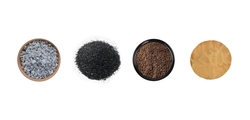
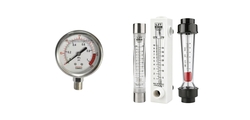
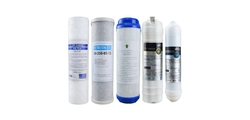
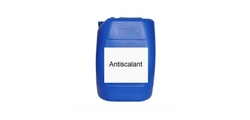
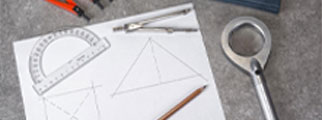



AQUALITEK- Aimee Hoo
AQUALITEK - Aimee Hoo